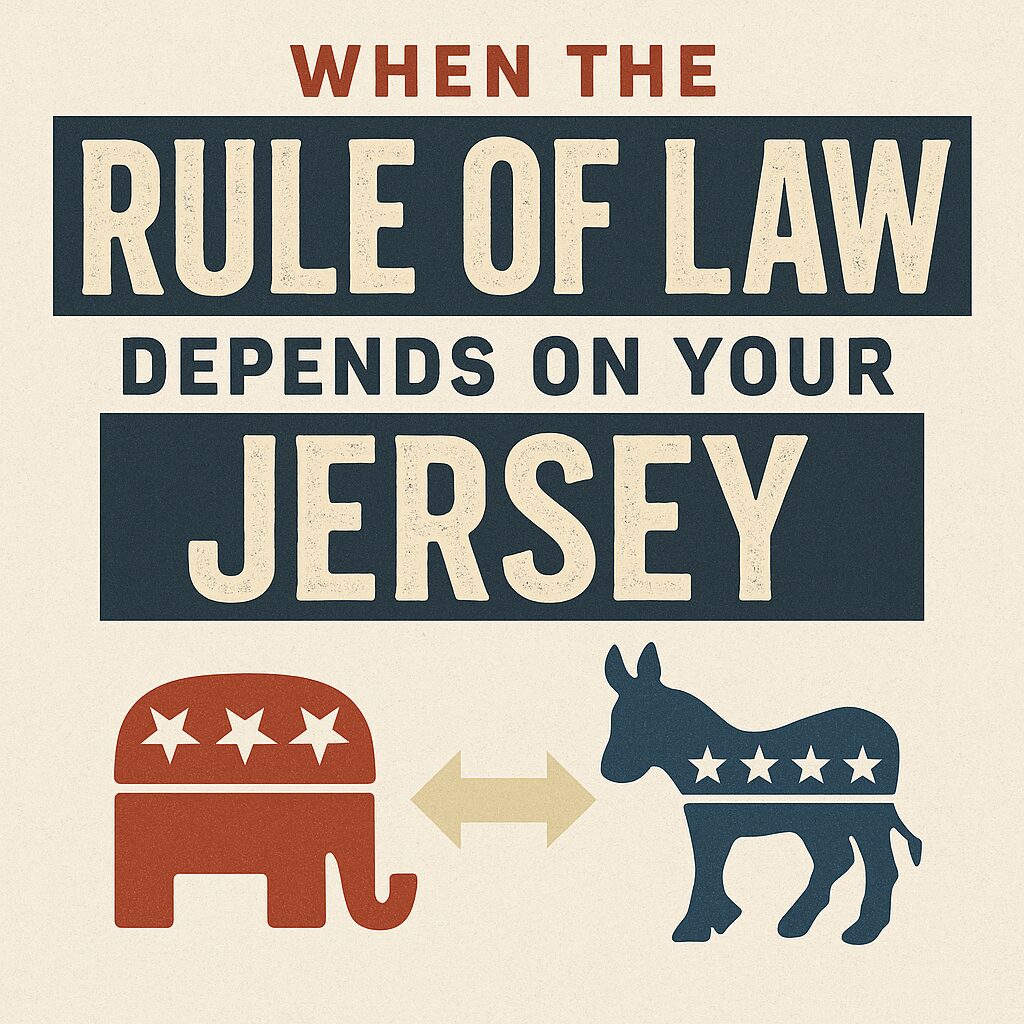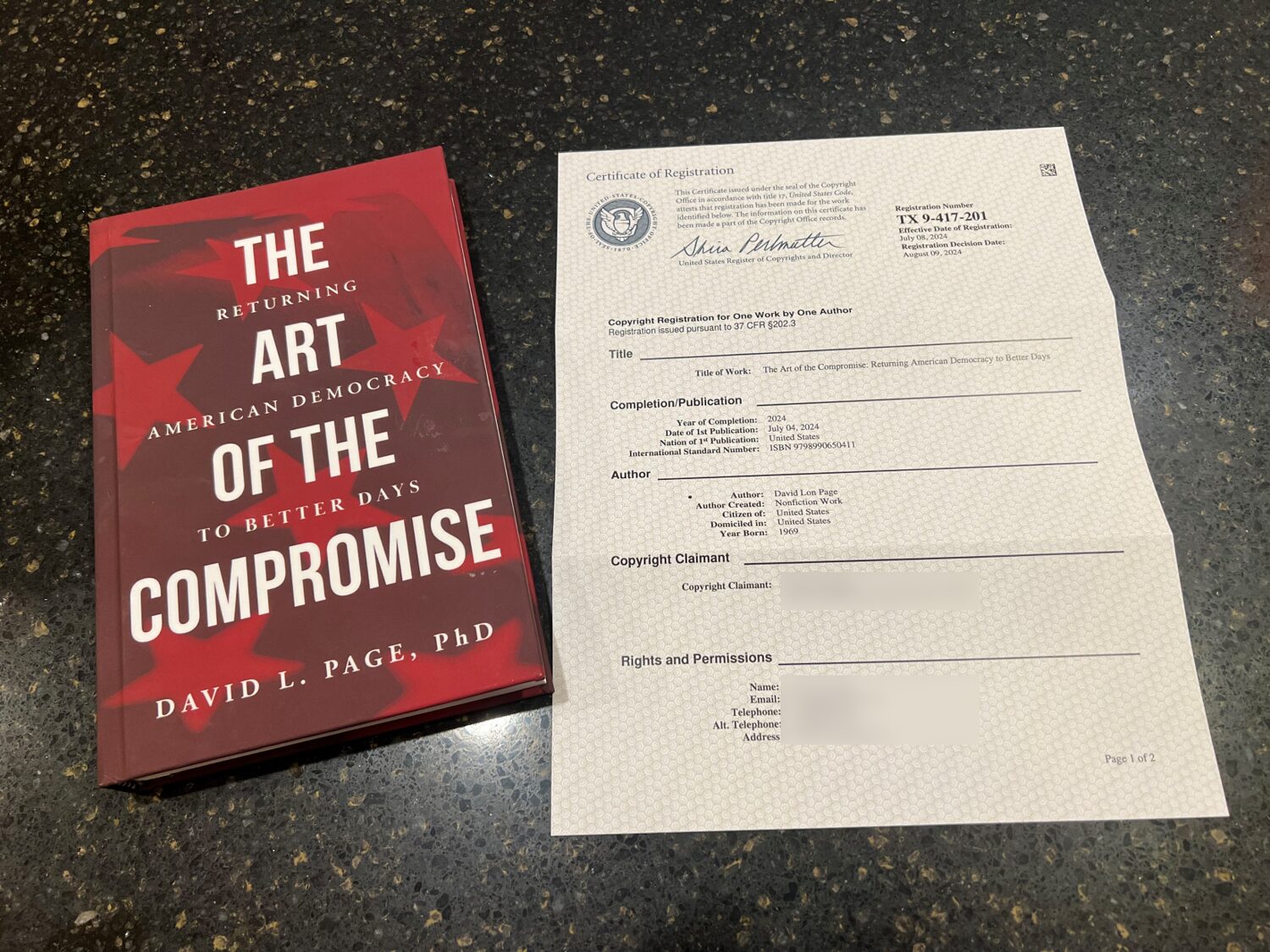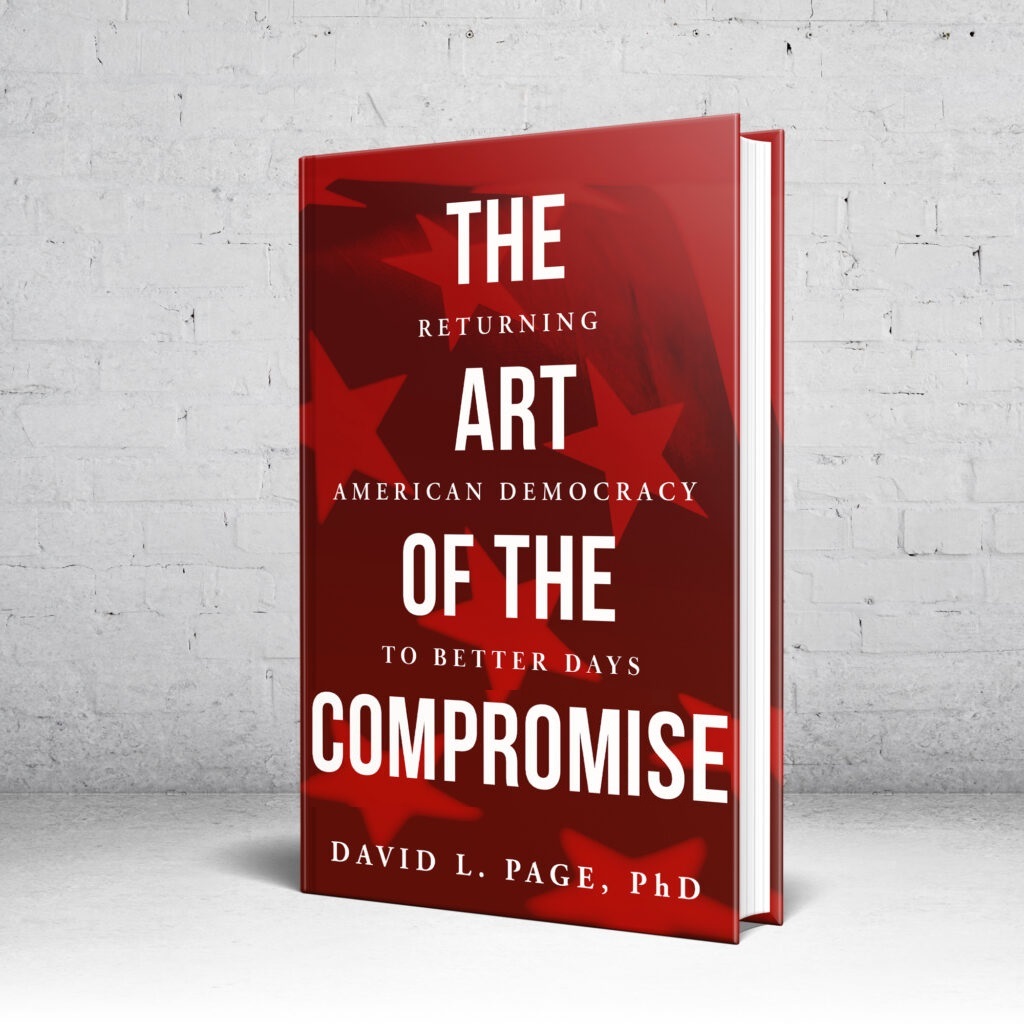Politicians love to preach about “the rule of law.” But funny thing—nobody seems to mean it when it applies to their own side.
One minute, it’s sacred. The next, it’s “just politics.” These days, the rule of law feels less like a foundational principle and more like a rhetorical crowbar—something you pull out when it helps your team, then toss aside when it gets in the way.
Let’s call it what it is: selective outrage. And it’s eating this country alive.
Republicans and the Jan. 6 Dilemma
Let’s start with the elephant in the rotunda.
January 6th wasn’t your average protest. Things got out of hand. People broke laws. But whether you think it was a riot, a protest that spiraled, or something darker—it was a moment when a whole lot of self-proclaimed “law and order” conservatives suddenly found themselves making excuses for trespass, obstruction, and assault.
Some said the protesters were patriots. Others blamed federal agents. A few denied anything even happened. Meanwhile, hundreds of people faced real charges—and many pled guilty to real crimes. And yet, you’ll still hear folks say, “It was no worse than the summer riots of 2020.”
Now, I’m not here to relitigate that day. But if you’re going to wear the law-and-order badge, you don’t get to unpin it the second things get politically uncomfortable. Either we believe in the rule of law—or we don’t.
Democrats and the Modern-Day Mob Pass
Now swing the spotlight to the left.
In cities like Los Angeles, we’ve seen protest after protest spiral into chaos. Sometimes it’s about immigration, sometimes it’s Gaza, sometimes it’s policing. But when folks start smashing windows, blocking highways, or brawling with officers—that’s no longer civil disobedience. That’s unlawful.
And yet, how many arrests get made? How many prosecutors follow through? In too many cases, the answer is: not many. Instead, we get a press conference full of word salad about “systemic harm” and “community healing,” but precious little about criminal accountability.
The same people who cried “insurrection!” for January 6 barely bat an eye when activists in their own backyard take over buildings or clash with law enforcement. The laws don’t change—just the jerseys.
Law for Me, Not for Thee
This ain’t complicated.
- If you block a courthouse door in a red hat, you’re a threat to democracy.
- If you chain yourself to a federal building in a rainbow scarf, you’re a freedom fighter.
You see the problem.
The rule of law doesn’t work if we only apply it based on who’s holding the protest sign. That’s not law. That’s tribalism with a press team.
Integrity Is What You Do When It Hurts
The rule of law is supposed to be blind. But these days, it’s squinting through partisan glasses.
It’s easy to demand justice when the other guy is in the crosshairs. The hard part is sticking to principle when your own side steps over the line.
That’s what integrity looks like. That’s how a republic survives.
So here’s the bottom line:
If you only believe in the law when it helps your team, you don’t believe in the law—you believe in winning.
And that kind of winning? It costs more than it’s worth.
Written with a little help from ChatGPT, but blame the sass and the sarcasm on me. —David L. Page, Ph.D., Chief Trouble-Stirrer at Warped Minds Press.



Ok, David, hear me out: the selective outrage is not happening on both sides like you claim, or at least it’s not happening to the same degree on both sides. Political violence is the rule on the Left, and the exception on the Right. The reason you and everyone else cite Jan 6 to make the case for “both sides do this” is because Jan 6 is the ONLY example you can come up with of folks on the Right getting out of hand.
Yes, Jan 6 was bad, but the reason it was bad and so chaotic isn’t because the Right is bad and chaotic, but rather it’s because the Right is so inexperienced at theatrical political protest and violence. We’re bad at it because that’s not how we roll. The one time we went there was a disaster.
The Left is good at protest and political violence because they’re experienced in that form of political action. And the reason they’re so experienced is because they spend a lot of time doing it. It’s not even remotely close.
The Right has a very solid leg to stand on when it advocates for the rule of law. Jan 6 is a very good example of the exception proving the rule.
Good to hear from you, Bryon. And, fair point—respectfully, though, I think you’re proving mine.
You’re saying Jan 6 was a one-off, an outlier, because the Right doesn’t “do” political violence. But here’s the uncomfortable truth: Once is all it takes when the target is the peaceful transfer of presidential power.
You don’t get extra credit for being “bad” at insurrection.
But let’s take your argument seriously—say the Left does have more experience with protest and political violence. That’s not a defense of the Right. That’s just a different flavor of selective outrage.
You know what really makes people cynical about the rule of law?
Not just the protests themselves, but the wildly different reactions they provoke.
– Right-wing protest in Charlottesville? National disgrace. Condemned as fascism.
– Left-wing riots over the summer of 2020? “Mostly peaceful.”
– The McCloskeys defend their home in St. Louis with legal firearms? Media circus. Prosecuted.
– Protesters break into federal buildings and torch police stations? Slap on the wrist—if that.
Or how about this double standard:
– Club Q and Pulse nightclub shootings? Broad political blame was aimed at conservatives.
– But if the violence targets a pro-life center or Christian school? Radio silence.
So let’s not pretend either side has a monopoly on chaos.
The difference is, one side breaks stuff and calls it justice. The other side breaks stuff and calls it patriotism. Either way, it’s still breaking stuff, and the rule of law doesn’t care who started it.
What I’m arguing isn’t moral equivalence. It’s moral consistency.
If your side’s violence gets a pass and the other side’s gets the electric chair, you’re not defending law and order—you’re just defending your tribe.
And once law becomes tribal, the republic’s days are numbered.
Appreciate you engaging, always good to hear from a fellow rebel. The fact we’re still debating this in public (without shouting each other down) is a small win worth defending.